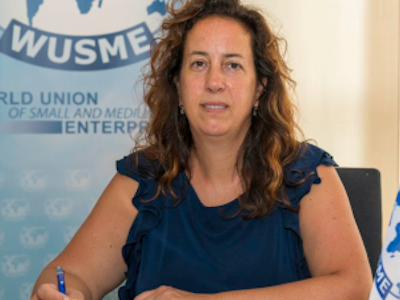Part I: High-level segment
Small and medium-sized enterprises (SMEs) are the backbone of economies around the world, yet relatively few engage in international trade, and even fewer invest abroad. International trade and investment activities benefit productivity and can bring gains for both home and host economies, including the achievement of the SDGs. The new industrial revolution, the continued rise of emerging players, and the growing importance of global value chains are changing that landscape, rapidly making it imperative to take a fresh look at FDI and other forms of internationalization of SMEs directly.
This high-level session will bring together policymakers, business sector representatives, researchers and practitioners, to discuss the patterns and development impact of internationalization of SMEs at the micro and macro levels. Panellists will also explore ways to document the development impact on internationalization of SMEs, based on selected case studies. They will highlight special issues including the gender angle and the role of migrant and diaspora investors; identify the policy challenges for internationalization of SMEs in home and host countries; explore access to finance, business intelligence, digital technologies and skills, business and investment facilitation and investment promotion; and suggest ways for policy guidance, especially in terms of eliminating any policy bias favouring large multinationals. A particularly important aspect to be explored is the role of SMEs in South–South and intraregional FDI.
The session will lay the ground for a fully fledged and policy-oriented UNCTAD research project looking at the issues raised at the round table in a systematic way.
Issues to be addressed
- What drives FDI and other forms of internationalization by SMEs?
- What can FDI by SMEs contribute to the development and international competitiveness of home and host countries?
- How can SMEs contribute to global or regional supply chain development via linkages?
- Are the gender, social and environmental practices of SME investors different from the practices of other investors?
- What are the main policy challenges for SMEs? Is there a policy bias towards large companies? If yes, in which areas, and how can they be dealt with? What kind of policy guidance can be provided and what role should UNCTAD play in it?
- What are the main new challenges that SME investors face during the pandemic? What kind of new policy challenges does the pandemic pose for policymakers to support SME investors?












